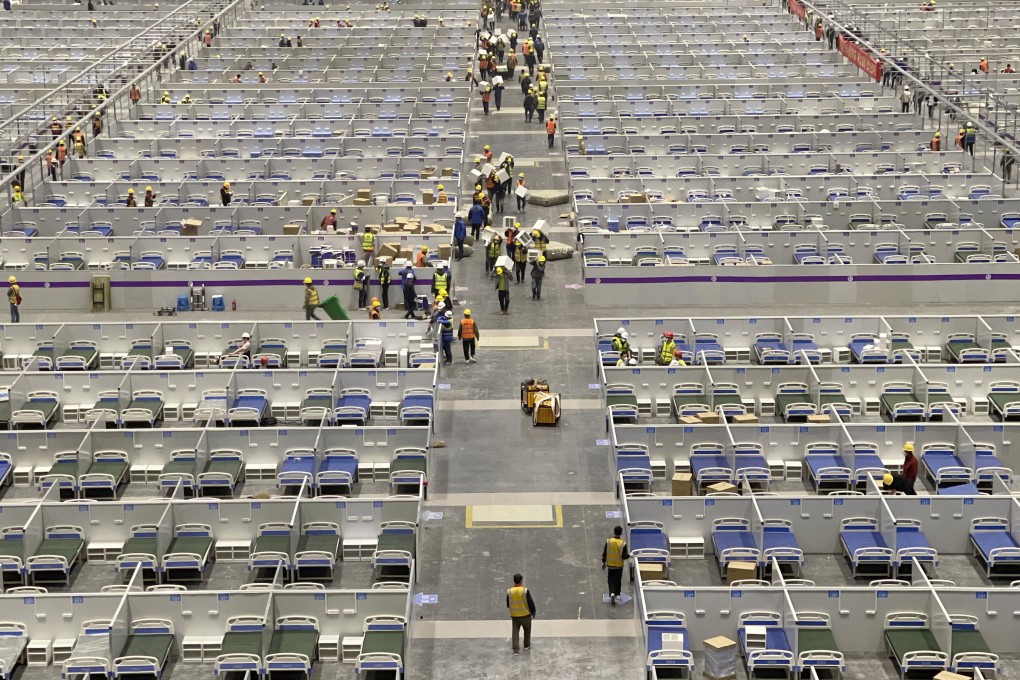Shanghai releases more than 11,000 Covid-19 patients after recovery, but new infections keep climbing
- The city recorded almost 25,000 infections on Sunday, the ninth straight day of rising case numbers
- Businesses are braced are worried that the city’s lockdown will continue for weeks, further hitting the local economy

Wu Qianyu, a senior official with the city’s public health commission, said on Sunday that the patients would be put under home quarantine and no further controls should be imposed on them.
“Relevant authorities in the areas they live in have to be alerted that they are allowed to go home,” Wu said. “At the same time, the officials are required to monitor their health [during the quarantine].”
The health commission did not say how many of the recovered patients had symptoms.
Shanghai reported 24,944 new infections on Sunday, setting a record for the ninth consecutive day. Of those, 1,006 were symptomatic, slightly down from 1,015 on Saturday.
Shanghai, China’s commercial and financial capital, has seen more than 179,000 cases since the current outbreak, driven by the Omicron variant, began on March 1.